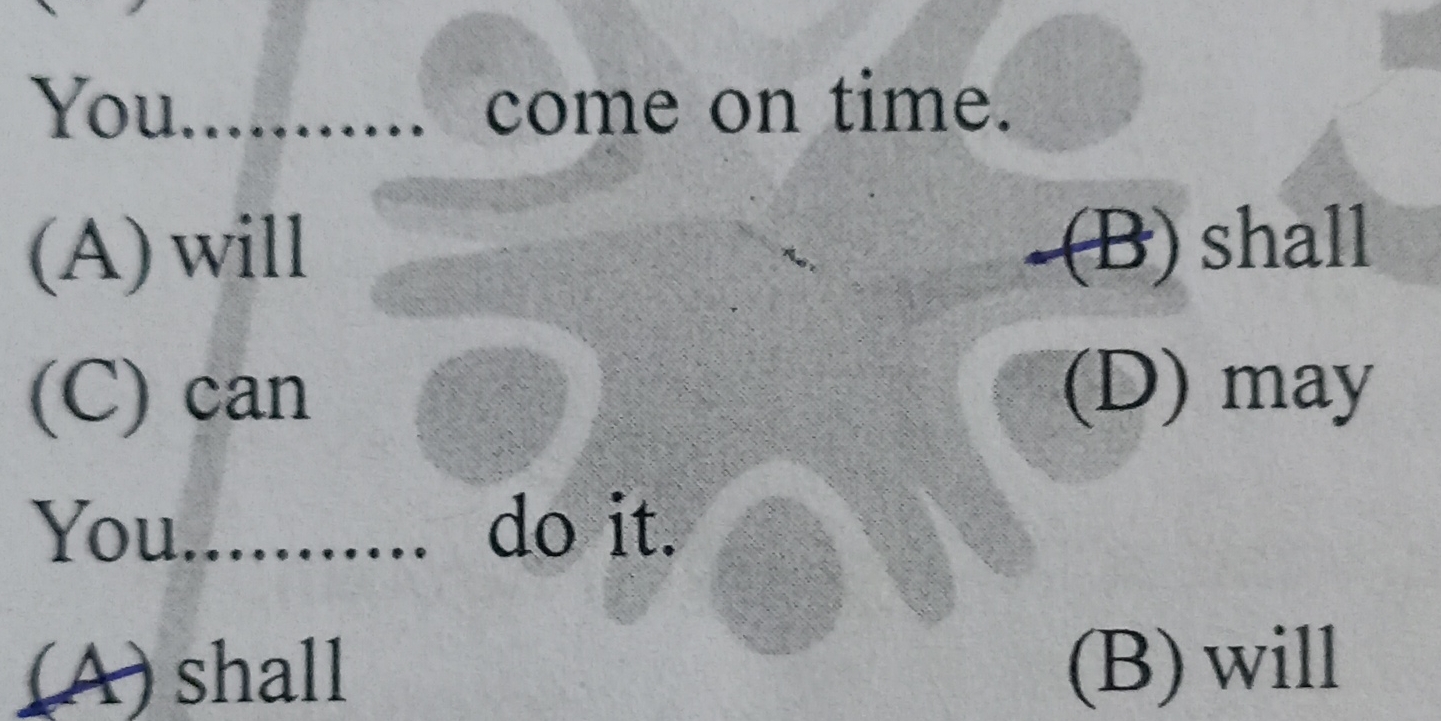You.......... come on time. (A) will (B) shall (C) can (D) may. You.......... do it. (A) shall (B) will.

Understand the Problem
The question is asking which auxiliary verb fits the sentences appropriately. It assesses understanding of modal verbs in English.
Answer
'You shall come on time. You will do it.'
The final answer is 'You shall come on time. You will do it.'
Answer for screen readers
The final answer is 'You shall come on time. You will do it.'
More Information
'Shall' is used to express obligation or formal instruction, while 'will' is used to indicate future actions or decisions.
Tips
It's common to confuse 'will' and 'shall'. Remember, 'shall' often suggests obligation in formal settings.
Sources
- Future: will and shall - Grammar - Cambridge Dictionary - dictionary.cambridge.org
AI-generated content may contain errors. Please verify critical information